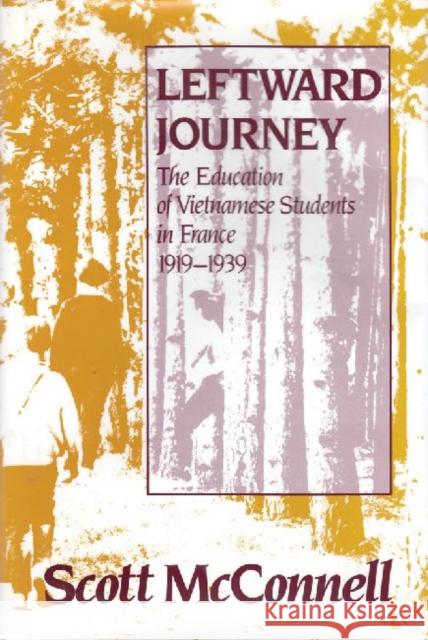Leftward Journey: Education of Vietnamese Students in France » książka
Leftward Journey: Education of Vietnamese Students in France
ISBN-13: 9780887382383 / Angielski / Twarda / 1988 / 220 str.
Leftward Journey: Education of Vietnamese Students in France
ISBN-13: 9780887382383 / Angielski / Twarda / 1988 / 220 str.
(netto: 670,75 VAT: 5%)
Najniższa cena z 30 dni: 654,86 zł
ok. 16-18 dni roboczych.
Darmowa dostawa!
This is a study in failed colonialism and an evocative exploration of a number of questions that go to the heart of explaining the tragedy that engulfed Vietnam in the postwar era. Drawing upon a wide range of archival sources that have only recently become available, Scott McCon-nell examines the causes and consequences of the Vietnamese student migration to France after World War I. When the student exodus from Vietnam began, a victorious France was more conscious and proud of its status as an imperial power than ever before. It commanded the loyalty of many of its subjects: during World War I, hundreds of thousands of soldiers from the colonies had served France in the trenches, and afterwards many came to study in French schools and universities. But some of the leading figures among them learned not to appreciate French values, but to have contempt for them, and they sought to turn the knowledge they had gained in France against French rule. How did this occur? Why did so many Vietnamese who came to France during the Stalin era join the Communist movement? Why was the Communist party so much more successful than other parties in recruiting Vietnamese students? And why were the Vietnamese so much more receptive to the Communist message than students from other French colonies? McConnell believes the answers lie in the kinds of experiences that young Vietnamese had when they came to France. He shows that the French government's policies uere inconsistent and ineffectual, and French attitudes toward these young men changed from pride to hostility as they began to seem less the flowering of the French imperial idea than an ungrateful cadre of rebels. Leftward Journey records the birth of -Third World- politics on the Parisian Left Bank, and shows how its first echoes fed into allegiance to communism. The book vividly portrays the superior energy and sense of direction of the French Communist party during the thirties, and shows how the Communists outdid their socialist and bourgeois rivals in winning Vietnamese recruits. As a contribution to Vietnamese history, this book will be of intense interest to professional scholars. Students and teachers of twentieth-century European colonialism will also find it useful. It provides important background to American intervention in Vietnam and to those who are interested in Third World Communist and nationalist movements.











